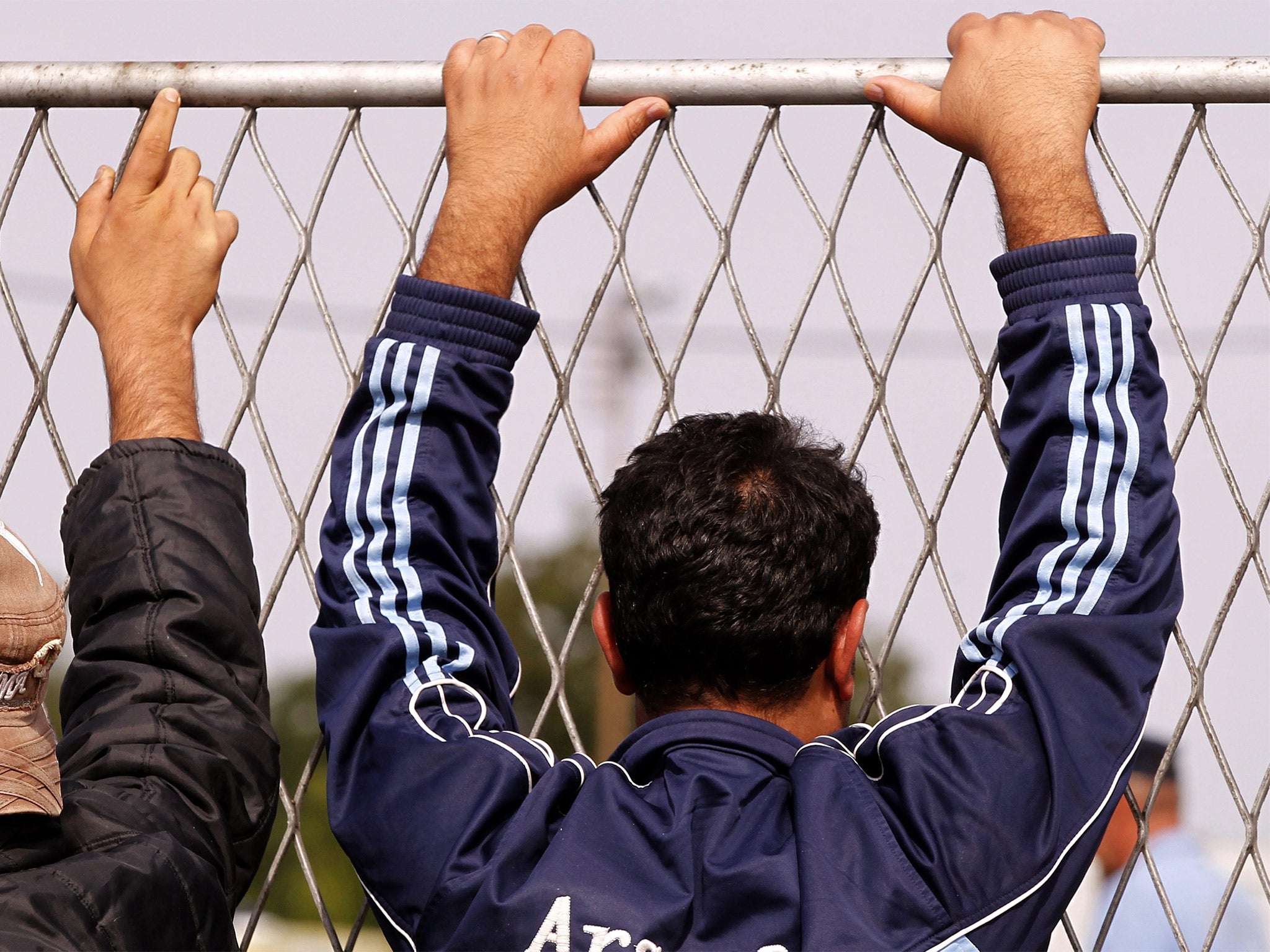Refugee crisis: EU ministers agree to relocate 120,000 asylum seekers
The agreement came despite legal threats and over objections of several eastern European nations

Your support helps us to tell the story
From reproductive rights to climate change to Big Tech, The Independent is on the ground when the story is developing. Whether it's investigating the financials of Elon Musk's pro-Trump PAC or producing our latest documentary, 'The A Word', which shines a light on the American women fighting for reproductive rights, we know how important it is to parse out the facts from the messaging.
At such a critical moment in US history, we need reporters on the ground. Your donation allows us to keep sending journalists to speak to both sides of the story.
The Independent is trusted by Americans across the entire political spectrum. And unlike many other quality news outlets, we choose not to lock Americans out of our reporting and analysis with paywalls. We believe quality journalism should be available to everyone, paid for by those who can afford it.
Your support makes all the difference.Amid legal threats and over the objections of four eastern European nations, EU interior ministers meeting in Brussels have pushed through a controversial plan to relocate 120,000 refugees across the continent.
The vote came as EU leaders are due to gather in Brussels for an emergency summit to tackle the escalating migration crisis. Slovakia, Hungary, Romania and the Czech Republic voted against the proposal to set binding relocation quotas of asylum seekers for each EU member state, as part of a plan to ease the strain on countries that are the first point of entry for most refugees, such as Greece or Italy.
The relocation proposal, unveiled two weeks ago by the European Commission, allocates refugees to each member state based on how big they are, how rich they are, how many asylum seekers they already have, and their unemployment rate.
The Czech government earlier indicated that compulsory quotas were illegal and that it could take the issue to the European Court of Justice in Luxembourg. At the same time, the Hungarian parliament passed a resolution calling on its government to “defend itself by every necessary means” against “waves [of] illegal immigration”.
The measure was strongly backed by Germany and France. Yet even among its supporters, there are growing concerns about whether a mandatory regime can be enforced. Some officials have admitted that refugees fleeing war and crossing seas and continents are unlikely to accept orders to stay in, say, Slovakia, when they really want to be in Germany.
But German Interior Minister Thomas de Maizière insisted that this would not happen. “Refugees cannot decide to which country they want to go. If they want to move somewhere else, they will be sent back to the first EU country to which they were allocated,” he said.
Britain, which has an opt-out from such migration issues, has refused to take in any refugees from overstretched frontline EU states. Instead, it has said it will resettle 20,000 Syrian refugees from outside Europe over the next five years, with the government saying the first had arrived in the UK.
Home Secretary Theresa May has urged her counterparts to “get on with the job of the wider measures that need to be taken of ensuring that we are breaking the link for economic migrants between making this dangerous journey and settling in Europe”.
Mrs May said: “We need to return those people who are illegally economic migrants and who have no right to be here and ensure that people arriving at Europe’s borders are being properly dealt with, properly fingerprinted so that decisions can be made and when they are illegal economic migrants, they can be returned.”
As well as endorsing the quota deal, EU leaders are due to discuss longer-term strategies for dealing with the crisis, particularly increasing cooperation with Turkey and the other countries bordering war-torn Syria, where an estimated four million refugees are currently living.
European Council President Donald Tusk, who chairs EU summits, has said that the EU needs to help Syrian refugees find a better life closer to home. He has called for more aid to the World Food Programme and the United Nations High Commissioner for Refugees. He also wants to strengthen the EU’s asylum agency, Frontex, into a full border and coastguard agency, and has said drawing up a list of “safe countries” whose citizens would not normally qualify for asylum, would also be up for discussion.
Join our commenting forum
Join thought-provoking conversations, follow other Independent readers and see their replies
Comments